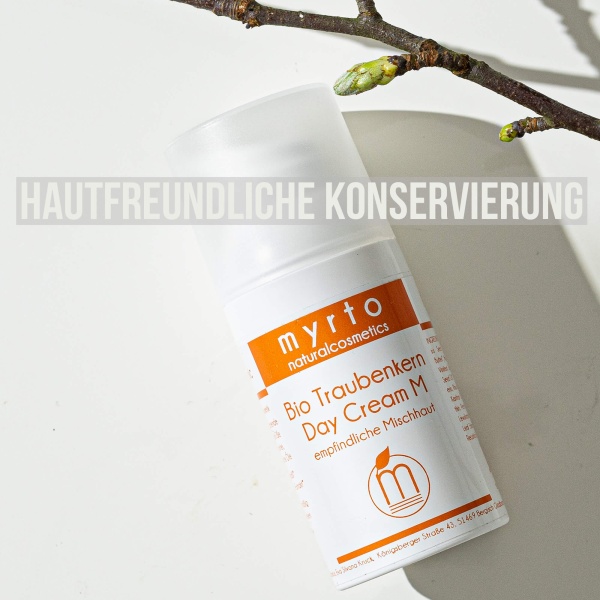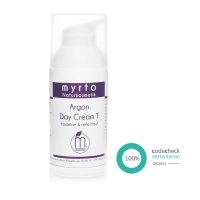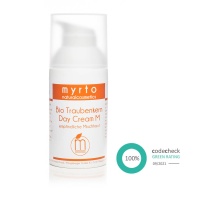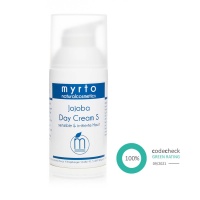In many skin care products you will still find ingredients that shouldn't be there. This applies above all to substances containing mineral oil, silicones, surfactants, emulsifiers and harmful preservatives that can irritate, trigger allergies, upset the hormone balance or impair sensitive metabolic processes in your body.
Preservative with parabens
The salts and esters of para-hydroxybenzoic acid are referred to as parabens. They have been widely used as germ-inhibiting substances for preservation for more than 80 years. Parabens are permitted as preservatives under the EU Cosmetics Regulation. Their long-term effects are still largely unexplored. They are found in cosmetics, but also in food, pharmaceutical products, tobacco products and clothing. The problem is less the occurrence in a single cosmetic product, but the critical total amount of parabens to which we expose ourselves.
Health risks of parabens
With regard to their side effects, parabens have long been the subject of discussion. In terms of their molecular structure, they are similar to the female sex hormone estrogen. Parabens can disrupt hormonal balance, stimulate uncontrolled growth of breast tissue and promote breast cancer. Studies have shown that parabens in men lower testosterone levels, sperm production, can lead to feminization and impair reproduction. Nevertheless, the Federal Institute for Risk Assessment (BfR) considers the use of methyl and ethyl paraben in the permitted concentration range of up to 0.4% in cosmetics to be safe. Other parabens such as butyl or propyl paraben with an even stronger estrogenic effect are considered safe up to a use of 0.19%, but are strictly forbidden, at least in baby products. Parabens are generally not allowed in natural cosmetics.
Parabens are considered potentially skin irritants, can act as contact allergens and trigger allergies. Studies also show that children of women who have used cosmetics containing parabens during pregnancy have an increased risk of being very overweight (obese).
Preservatives in natural cosmetics
Traditionally, natural cosmetics are often preserved with alcohol in concentrations of over 15%. Pure spirit alcohol (INCI: Alcohol) is not considered a preservative according to the Cosmetics Ordinance, but it effectively fights bacteria, mold and yeast. Alcohol is not sensitizing, but it degreases the skin and weakens the skin barrier.
Even the few preservatives approved for natural cosmetics such as potassium sorbate (potassium sorbate), sodium benzoate (sodium benzoate), benzoic acid (benzoic acid), salicylic acid (salicylic acid) or sorbic acid (sorbic acid) are not unproblematic: They have an increased potential for irritation and are therefore suitable for not recommended for sensitive skin. The “nature-identical” preservatives mentioned are also used in processed foods. They are suspected of impairing sensitive metabolic processes in the body and promoting symptoms such as irritable bowel syndrome.
Alternative preservation with multifunctional ingredients
Instead of questionable preservatives, at myrto we use innovative, antimicrobially effective natural alternatives with optimized skin compatibility. We have developed a modern natural cosmetics concept that is free from parabens and other listed preservatives. Instead, the microbiological stability of myrto facial care is based on organic acids - multifunctional, naturally occurring active ingredients with skin-care properties.
Organic acids have the positive property that they also have a preserving effect as an accompanying effect in addition to the skin-care properties. Organic acids include, for example, anisic and levulinic acid. These mild organic acids are made from Indian star anise or non-GMO cornstarch. They care for the skin, stabilize the slightly acidic pH value of the skin and are also antimicrobial - very well tolerated even by sensitive, problematic and allergy-prone skin.
Another multifunctional ingredient with preservative properties is the natural moisturizer Pentylene Glycol from sugar cane. Pentylene Glycol combines skin care and moisturizing properties in myrto face care with reliable antimicrobial effectiveness.
Conclusion
The preservation with parabens as well as the classic preservation in natural cosmetics is not unproblematic. For this reason, myrto uses organic acids, which care for the skin and also have a preservative effect.
Each myrto cosmetic is composed in such a way that the antimicrobial effectiveness of the individual substances not only complements each other, but also leads to optimized skin compatibility. Due to their primarily skin-care properties, all myrto products that are preserved without classic preservatives with multifunctional active ingredients can be described as "preservative-free" according to the EU Cosmetics Directive.






